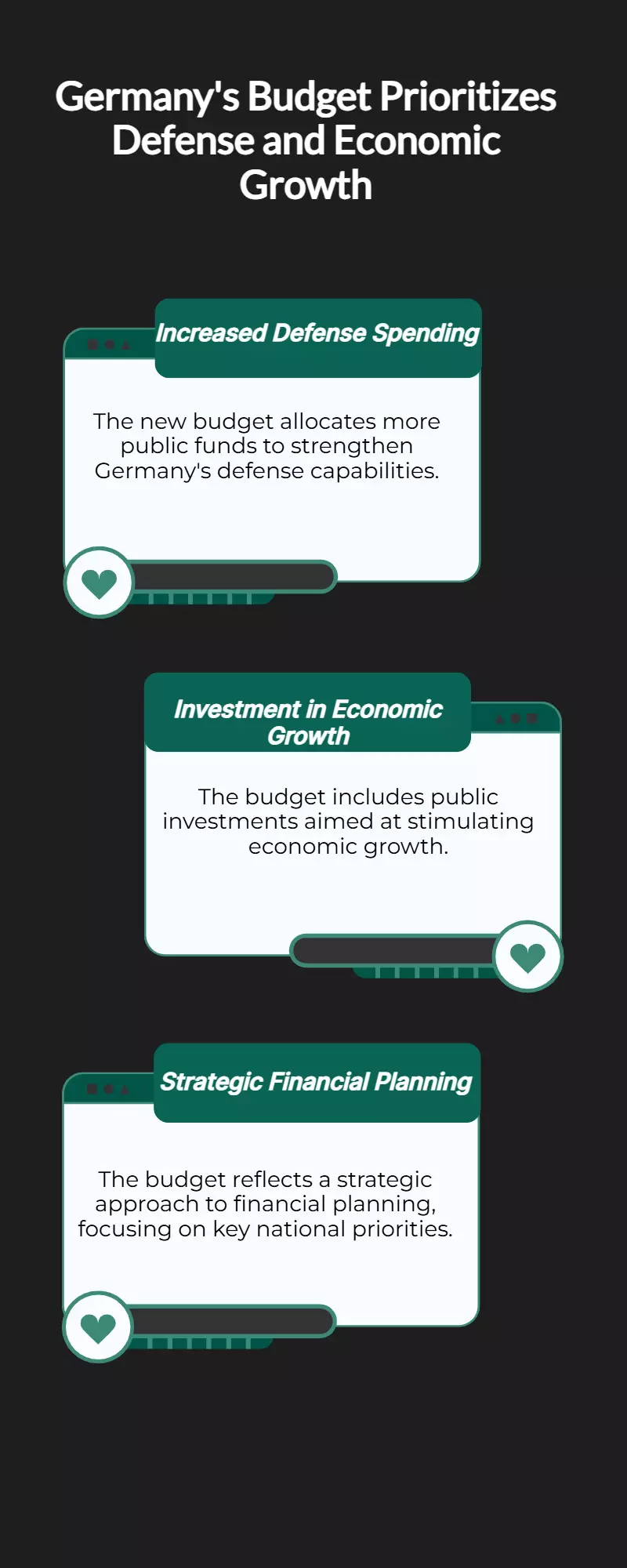Germany boosts defense & growth with public investment in new budget

By : Sandhya
Berlin, June 24 (EFE).- German Vice-Chancellor and Finance Minister Lars Klingbeil presented on Tuesday the country's draft budget for 2025, outlining historic public investments to boost defense capabilities and reignite growth in Europe's economic power house.
The budget proposal includes total spending of €503 billion, with €115 billion, 22.8 percent of the total, earmarked for investments, a "record figure," according to Klingbeil. With this financial roadmap, Chancellor Friedrich Merz's government aims to reverse two consecutive years of recession and simultaneously strengthen Germany's military readiness. Defense spending surges The draft budget allocates €62.4 billion to defense in 2025, equivalent to 2.4 percent of Germany's GDP. This marks a significant increase from the €51.95 billion earmarked in the previous budget, and spending is expected to continue rising in the coming years. "By 2029, we will gradually increase defense spending so that we reach NATO's 3.5 percent target," Klingbeil said. Defense Minister Boris Pistorius welcomed the plans.
"We have made a historic shift in defense spending." The defense ministry has benefited from constitutional reforms passed before the current legislature, which allow defense borrowing above the 1 percent GDP cap, along with the creation of a €500 billion infrastructure fund for the next 12 years. According to Pistorius, the €62.4 billion in the regular defense budget will be supplemented by €24.4 billion from this special fund. If parliament approves the proposal, Germany's armed forces will have more than €86 billion in funding for 2025, including funds to hire 10,000 new soldiers this year. Investing in modernization Klingbeil emphasized that the budget also aims to pull the country out of economic stagnation.
Germany's GDP contracted by 0.3 percent in 2023 and by 0.2 percent in 2024, with little to no growth forecast for 2025. "Nothing is more costly than the stagnation of recent years. That's why it's right to invest more, to guarantee higher investments and solve the structural problems of the past," Klingbeil said. The government plans to direct millions toward modernizing infrastructure in transport, telecommunications, education, research, and climate protection.
